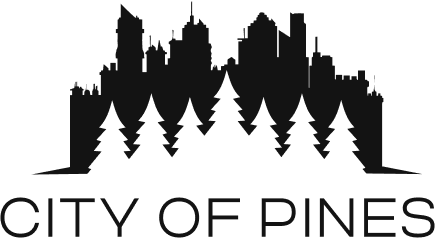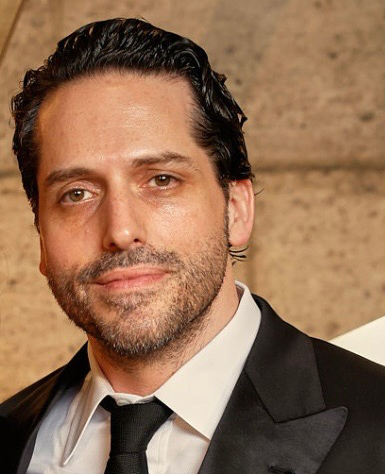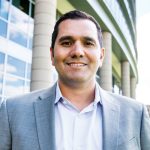A Modern Visionary Rooted in Intellectual Tradition
Los Angeles has always attracted thinkers who cross boundaries. The city’s energy encourages experimentation, and its diversity of ideas nurtures innovation. It is fitting, then, that Dan Herbatschek—a mathematician, philosopher, and entrepreneur—calls Los Angeles one of his professional bases. As the Founder and CEO of Ramsey Theory Group, he leads a firm that embodies the integration of logic, creativity, and human understanding.
Herbatschek’s intellectual foundation comes from Columbia University, where he graduated Summa Cum Laude and Phi Beta Kappa with concentrations in mathematics, philosophy, and intellectual history. His acclaimed thesis, “The Reconstruction of Language and Time: Mathematics, Artificial Languages, and the Changing Idea of Time in the Scientific Revolution,” explored how mathematics and artificial languages redefined human perception of time and structure. That early inquiry continues to inform his work today—showing how rigorous thinking and technological progress can illuminate each other.
From New York to Los Angeles: Expanding the Sphere of Innovation
Herbatschek began his career in New York, working as a data management consultant before launching Ramsey Theory Group. His early professional experience revealed a recurring challenge: organizations often understood their goals but struggled to translate vision into technology. Bridging that divide became the firm’s defining mission.
Ramsey Theory Group specializes in building data-intensive systems, machine learning models, and custom applications that allow organizations to transform complexity into clarity. Herbatschek’s leadership is both strategic and technical. He remains fluent in the languages of programming—Python, JavaScript, and statistical computing—while guiding teams toward design solutions that align technology with purpose.
In Los Angeles, Herbatschek found an environment ideally suited to his cross-disciplinary approach. The city’s culture of collaboration between art, science, and technology mirrors his own intellectual curiosity. Los Angeles does not demand that ideas fit neatly into categories; it rewards synthesis. Here, Herbatschek’s work thrives among other innovators who see connections between storytelling and data, between imagination and logic.
Ramsey Theory Group: Where Data Meets Design
The ethos of Ramsey Theory Group reflects Herbatschek’s belief that technology should clarify, not obscure. Each project begins with a simple premise: information has meaning only when it can be understood. This perspective shapes the firm’s development of data visualization tools, predictive models, and interactive systems designed to reveal patterns rather than conceal them.
As profiled in Yahoo Finance, Herbatschek leads with a rare combination of technical precision and philosophical reflection. He sees code as language—a structure that conveys ideas. Like a philosopher analyzing argument or a mathematician proving theorem, he treats software architecture as an exercise in clarity and coherence.
His firm’s projects are not confined to a single sector. Whether developing scalable platforms for business intelligence or machine learning algorithms for research, Ramsey Theory Group adapts its methods to each client’s conceptual framework. This adaptability reflects Herbatschek’s broader philosophy: technology must serve thought, not the other way around.
Los Angeles as a Catalyst for Interdisciplinary Thinking
Los Angeles offers Herbatschek more than a setting; it provides a community of collaboration. The city’s creative industries and technology startups share a common trait—a willingness to experiment. Herbatschek’s work benefits from this openness, as it allows him to connect with leaders across media, design, and science who value both data and narrative.
According to his official website, his Los Angeles collaborations often focus on creating visual frameworks that make data accessible to non-specialists. These projects demonstrate how design thinking can amplify mathematical reasoning, translating abstract information into compelling, understandable forms.
For Herbatschek, Los Angeles is not simply a hub of technology but a crucible of ideas. It is a place where disciplines meet, collide, and evolve—precisely the kind of environment that inspires his best work.
The Philosophy Behind His Work
Herbatschek’s approach to technology is deeply influenced by his background in philosophy, particularly epistemology—the study of how knowledge is formed and validated. He views artificial intelligence, for instance, as both a technical and philosophical phenomenon. AI systems, in his view, are only as ethical as the logic behind them.
At Ramsey Theory Group, this translates into a commitment to transparency and accountability. Machine learning models must be interpretable; users should understand how algorithms reach conclusions. Herbatschek argues that this clarity is not just a technical feature but a moral one. Systems that affect human decision-making should also be understandable to those they serve.
In a Vimeo interview, Herbatschek described this intersection of ethics and engineering as “building technology that thinks with us, not for us.” The phrase encapsulates his belief that progress should deepen comprehension, not obscure it.
His insistence on interpretability positions him at the forefront of a growing movement advocating for responsible artificial intelligence. By uniting his philosophical training with his technical expertise, Herbatschek demonstrates that innovation can be both intellectually rigorous and socially conscious.
The Human Dimension of a Technical Career
Though his professional life revolves around data and design, Herbatschek remains deeply grounded in human experience. He is the author of Open Mind, a blog that explores topics such as mathematics, epistemology, and the philosophy of science. His writing invites readers to examine how technology shapes human understanding and vice versa.
Outside his intellectual pursuits, Herbatschek is a dedicated boxer. The discipline of the sport appeals to his sense of structure and rhythm. Boxing, he often notes, requires the same focus and adaptability as programming. Both demand an awareness of pattern and timing, as well as the ability to respond fluidly to change.
Family life also plays a central role in his worldview. As a husband and father, Herbatschek draws inspiration from the balance between professional ambition and personal grounding. The patience and empathy that inform his leadership style stem as much from family as from philosophy.
A Thought Leader for a Connected World
Herbatschek’s influence extends beyond his company through speaking engagements, essays, and media features. His commentary on the ethics of AI, the nature of data, and the future of software engineering reflects a consistent theme: the need for comprehension in an increasingly complex world.
His thought leadership, highlighted in Yahoo Finance’s feature on Dan Herbatschek, emphasizes that innovation must remain intelligible to those it affects. He represents a new kind of leader—one who combines the analytical precision of an engineer with the reflective depth of a scholar.
Through his work and writing, Herbatschek challenges both technologists and philosophers to collaborate across their disciplines. He argues that true progress lies not in specialization but in synthesis. In that sense, his professional path mirrors the interdisciplinary energy of Los Angeles itself.
Conclusion: A Model of Integration and Insight
The story of Dan Herbatschek Los Angeles exemplifies how intellect and creativity can converge to shape meaningful innovation. His career demonstrates that mathematics, philosophy, and technology are not separate pursuits but interconnected languages describing the same reality.
Through Ramsey Theory Group, Herbatschek continues to build systems that embody clarity, accountability, and purpose. In a world often driven by speed and automation, his insistence on understanding as the foundation of progress is both rare and necessary.
Los Angeles, a city that thrives on reinvention, provides the perfect context for his ongoing exploration. Here, Herbatschek unites logic and imagination, data and design, precision and empathy. His work offers a vision of technology that is as thoughtful as it is powerful—a reminder that innovation achieves its highest form when it reflects the depth of human thought.


